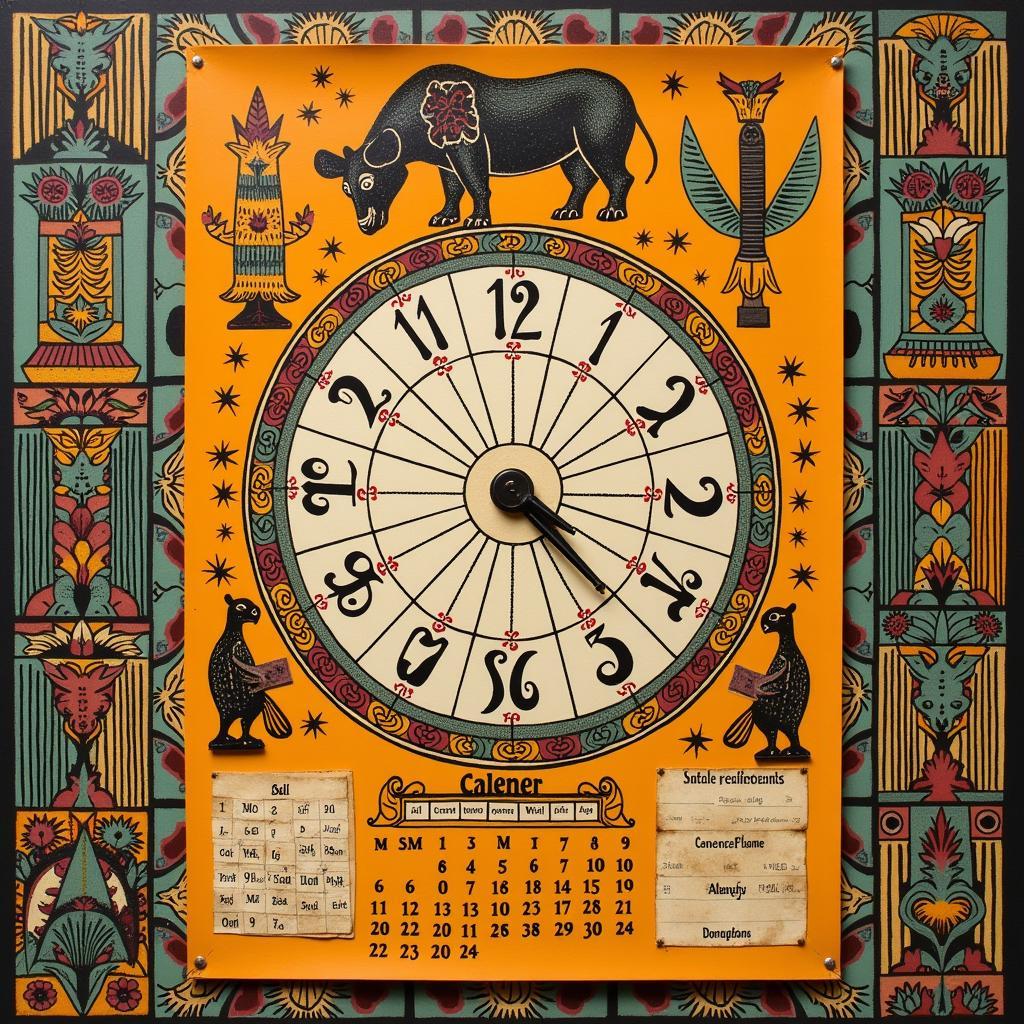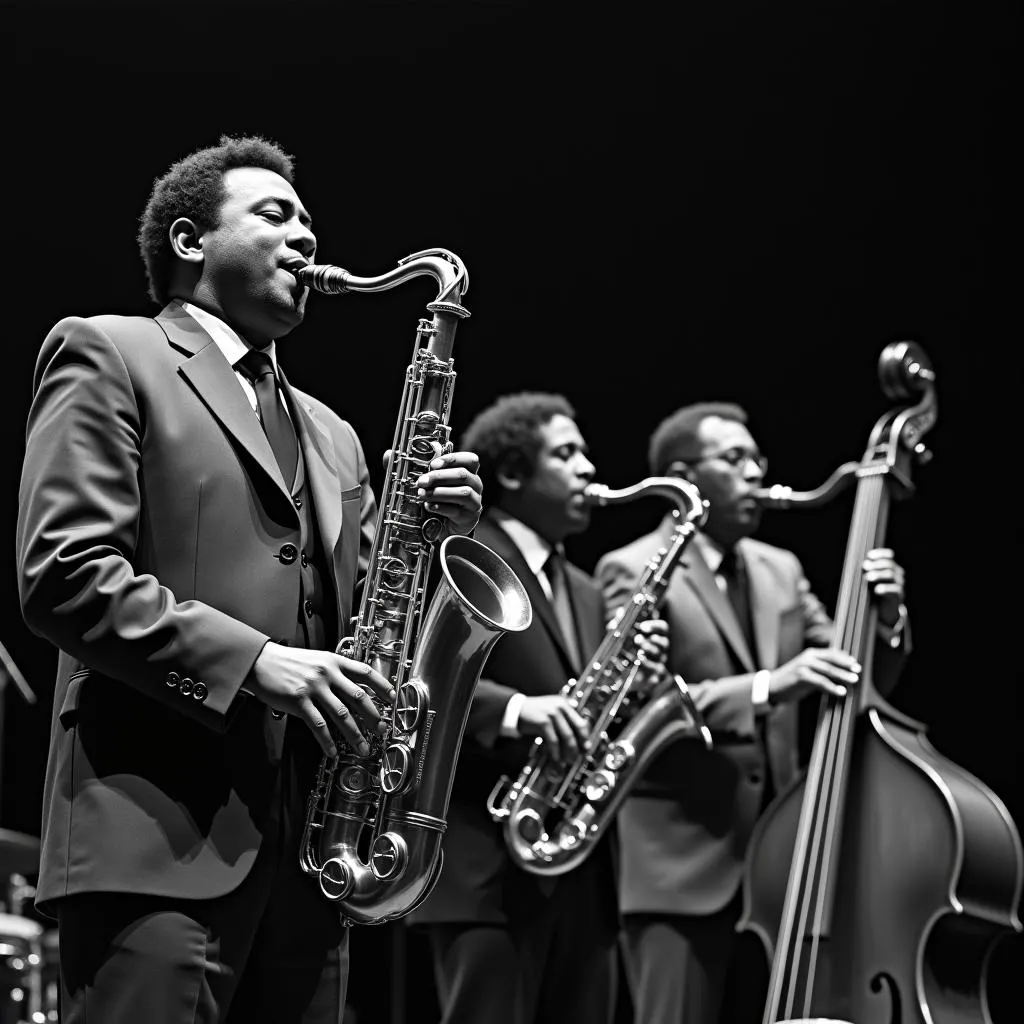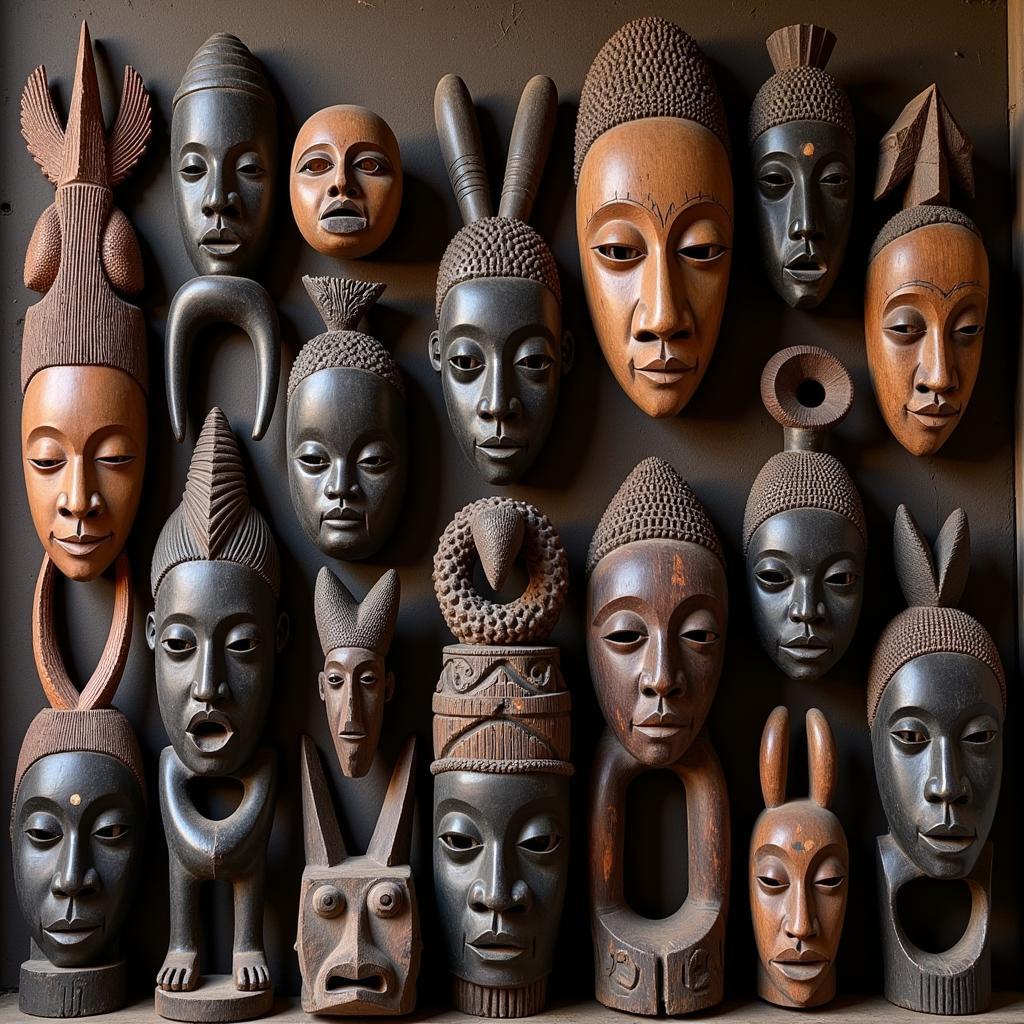Exploring the Rich Tapestry of African Culture Background
African Culture Background is a vast and diverse subject, encompassing the traditions, customs, beliefs, and artistic expressions of over a billion people across 54 recognized countries. From the ancient civilizations of Egypt and Kush to the vibrant contemporary art scenes of Lagos and Dakar, the African continent boasts a rich tapestry of cultural heritage that continues to shape the world. This article delves into the multifaceted nature of African culture, exploring its historical roots, artistic brilliance, musical rhythms, culinary delights, and the unique customs that bind communities together.
Unmasking the Historical Roots of African Culture
Understanding African culture requires a journey back in time. The continent is the cradle of humankind, with evidence of early human settlements dating back millions of years. Ancient empires, like the Kingdom of Aksum in present-day Ethiopia and the Great Zimbabwe, left behind impressive architectural wonders and sophisticated social structures. These historical foundations have profoundly influenced the cultural landscape we see today. The transatlantic slave trade, while a tragic chapter, also played a role in shaping African diasporic cultures across the globe, leading to a complex interplay of tradition and adaptation. From the oral traditions passed down through generations to the influence of colonialism and the fight for independence, African history has woven a complex narrative that continues to unfold.
A Symphony of Artistic Expression: From Ancient Rock Art to Contemporary Masterpieces
African art encompasses a wide spectrum of forms, including sculpture, painting, textiles, pottery, and body adornment. Ancient rock art provides glimpses into the lives and beliefs of early humans, while traditional mask-making continues to hold deep spiritual significance in many communities. The vibrant colors, intricate patterns, and symbolic representations found in African art reflect the continent’s diverse cultures and spiritual beliefs. Contemporary African artists are gaining international recognition, pushing boundaries and challenging conventional notions of art.
The Rhythms of Africa: Music and Dance as Cultural Expressions
Music and dance are integral to African culture, serving as powerful forms of communication, storytelling, and social bonding. From the hypnotic drumming of West Africa to the soulful melodies of East Africa, the continent’s diverse musical traditions offer a rich tapestry of sounds. Dance often accompanies music, with elaborate costumes and movements that convey stories and express emotions. Music and dance play a vital role in ceremonies, festivals, and everyday life, reflecting the spirit and resilience of African communities.
african girls with grafitte background
A Culinary Journey Through Africa: Exploring the Continent’s Diverse Flavors
African cuisine is as diverse as the continent itself, reflecting the unique ingredients, cooking techniques, and cultural influences of each region. From the spicy tagines of Morocco to the flavorful stews of West Africa, African food offers a tantalizing array of tastes and textures. The use of local ingredients, such as millet, sorghum, and a variety of fruits and vegetables, creates dishes that are both nutritious and delicious.
“African food is more than just sustenance; it’s a celebration of community and cultural heritage,” says renowned food historian Dr. Anika Nkrumah. “Each dish tells a story, reflecting the history and traditions of the people who created it.”
Customs and Traditions: The Fabric of African Society
African culture is deeply rooted in tradition, with customs and rituals that have been passed down through generations. These customs play a vital role in shaping social structures, reinforcing community bonds, and preserving cultural heritage. From rites of passage to marriage ceremonies and funeral traditions, these rituals offer a window into the values and beliefs that underpin African societies.
What are some common misconceptions about African culture?
One common misconception is that Africa is a monolithic entity. In reality, the continent is incredibly diverse, with thousands of different languages, ethnic groups, and cultural traditions.
How has colonialism impacted African culture?
Colonialism had a profound and lasting impact on African culture, disrupting traditional social structures and imposing foreign values and systems. However, African cultures have also demonstrated remarkable resilience, adapting and evolving while preserving core elements of their identity.
african girls with graffiti background
What is the role of oral tradition in African culture?
Oral tradition plays a crucial role in preserving and transmitting knowledge, history, and cultural values in many African societies. Stories, proverbs, and songs are passed down through generations, ensuring the continuity of cultural heritage.
Conclusion: Embracing the Diversity of African Culture Background
African culture background offers a captivating journey into the heart of a continent brimming with history, creativity, and resilience. From the echoes of ancient civilizations to the vibrant expressions of contemporary art, African culture continues to enrich the global tapestry. Understanding and appreciating this rich heritage is essential for fostering cross-cultural understanding and celebrating the shared humanity that unites us all. Exploring African culture is not just an intellectual pursuit; it’s an invitation to connect with the vibrant spirit of a continent that has shaped the world.
FAQ
- What are the main religions practiced in Africa?
- What are some examples of traditional African music?
- How does African art reflect cultural beliefs?
- What are some common ingredients used in African cuisine?
- What is the significance of storytelling in African culture?
Khi cần hỗ trợ hãy liên hệ Số Điện Thoại: +255768904061, Email: kaka.mag@gmail.com Hoặc đến địa chỉ: Mbarali DC Mawindi, Kangaga, Tanzania. Chúng tôi có đội ngũ chăm sóc khách hàng 24/7.



